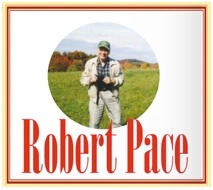 To the great sorrow of his many friends, colleagues, students, and loving family, Dr. Robert Pace passed away in September 2010.
To the great sorrow of his many friends, colleagues, students, and loving family, Dr. Robert Pace passed away in September 2010.
Dr. Robert Pace is credited with having revolutionized the art of piano teaching in the twentieth and twenty-first centuries, with his landmark ideas on both content and presentation. As an educator, he passionately committed himself to helping students become independent learners and lifelong musicians. His extraordinary vision of teaching music through simple ideas that could be infinitely interrelated, reshaped, and revisited, left an enduring legacy — that of a continually self-renewing approach, as dynamic today, as when it first came on the scene.
His Life
Robert began piano lessons at the age of five, and by the time he was nine, was performing radio concerts three times a week, along with his violinist sister, Mary. In addition to playing the piano, he also played trombone in his Junior High and High School Bands. He was a great fan of Glenn Miller, and sought to emulate the master’s sound in his trombone playing. During these years, Robert also played baseball, breaking a finger as a result, and worked at several jobs, including delivering newspapers and selling poultry and eggs.
During his high school years, Robert became serious about
his piano studies, and competed in and won many competitions. In 1942, he
graduated from Hutchinson High School and was accepted as a scholarship student by the famous Joseph and Rosina
Lhevinne, for study with them at Juilliard School of
Music.
During this time he also concertised, appearing at the
Isabella Stewart Gardner Museum in Boston, with the Dow Symphony Orchestra in
Midland Michigan and in other performances throughout the country. From 1959 to
1962, he was piano editor for the Music Journal. In 1962, he was appointed by John F. Kennedy
to the original four-member panel charged with studying the state of music and music education in
the United States. He served in this capacity until 1963, when the committee was
discontinued after the assassination of President Kennedy. In 1963, Dr. Pace
became director of the National Piano Foundation upon its inception. He served thus for fifteen years, until 1977, when he became executive director of the International Piano
Teaching Foundation.
Dr. Pace is renowned for developing “peer-teaching" piano lessons; for his curriculum of "Comprehensive Musicianship” in which he organically integrated repertoire, technique, reading and transposing, composing and improvising, analysis, theory, and musicality; for his development of his Multi-Key approach; for his philosophy of life-long independent musical learning; and for his abiding concern with the relationship between musical experience and its contribution to the quality of life of the individual, and, in turn, society as a whole.
Dr. Pace received the 2003 Music Teachers National Association Achievement Award; an honorary Doctor of Music degree from Westminster Choir College, Princeton, New Jersey; and in 2008, the Lifetime Achievement Award from the Music Educators National Conference. His books and articles have been translated into many languages and are distributed throughout the world.
See Also: Artist|Educator Archive Interview:
Dr. Robert Pace
—The Piano Education Page
_________
